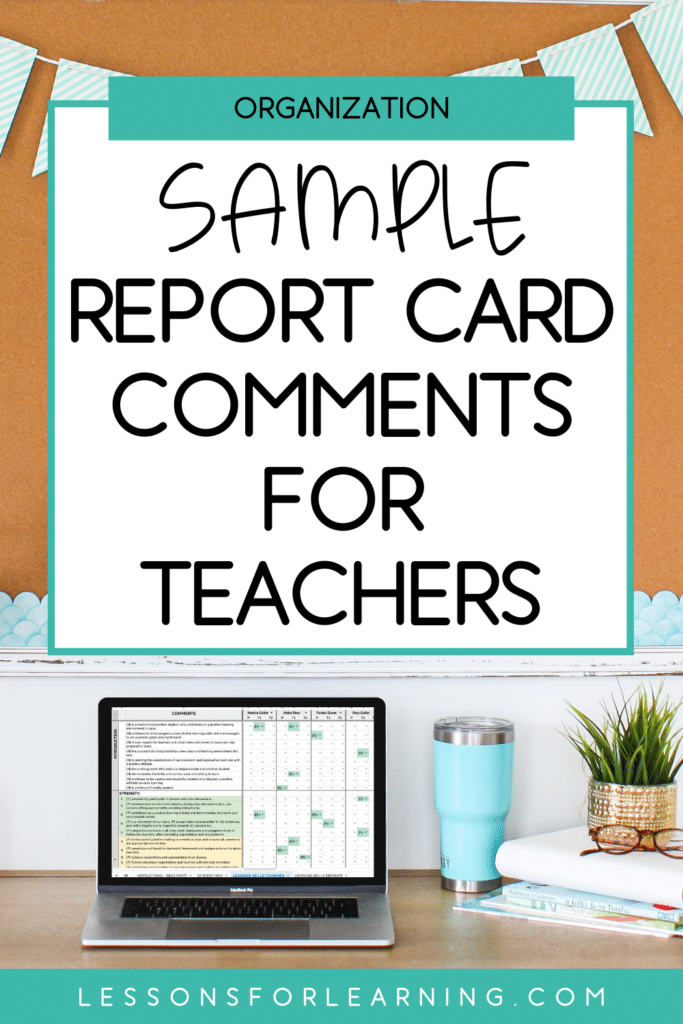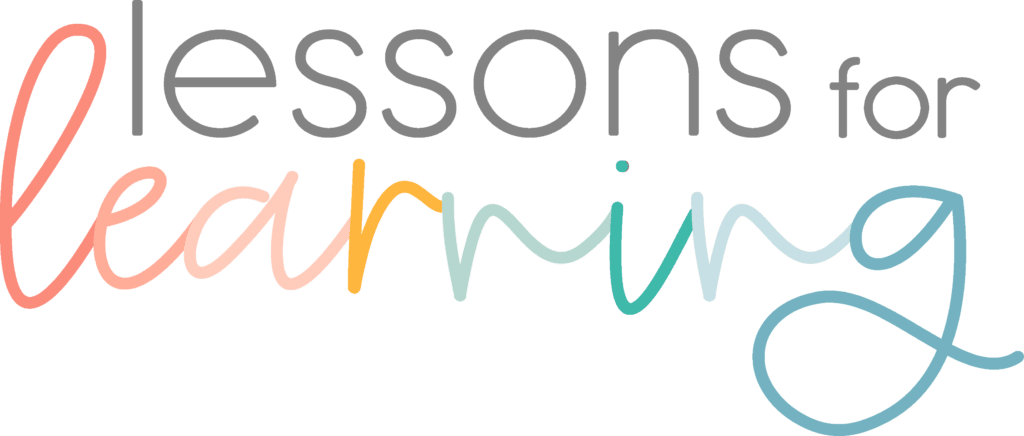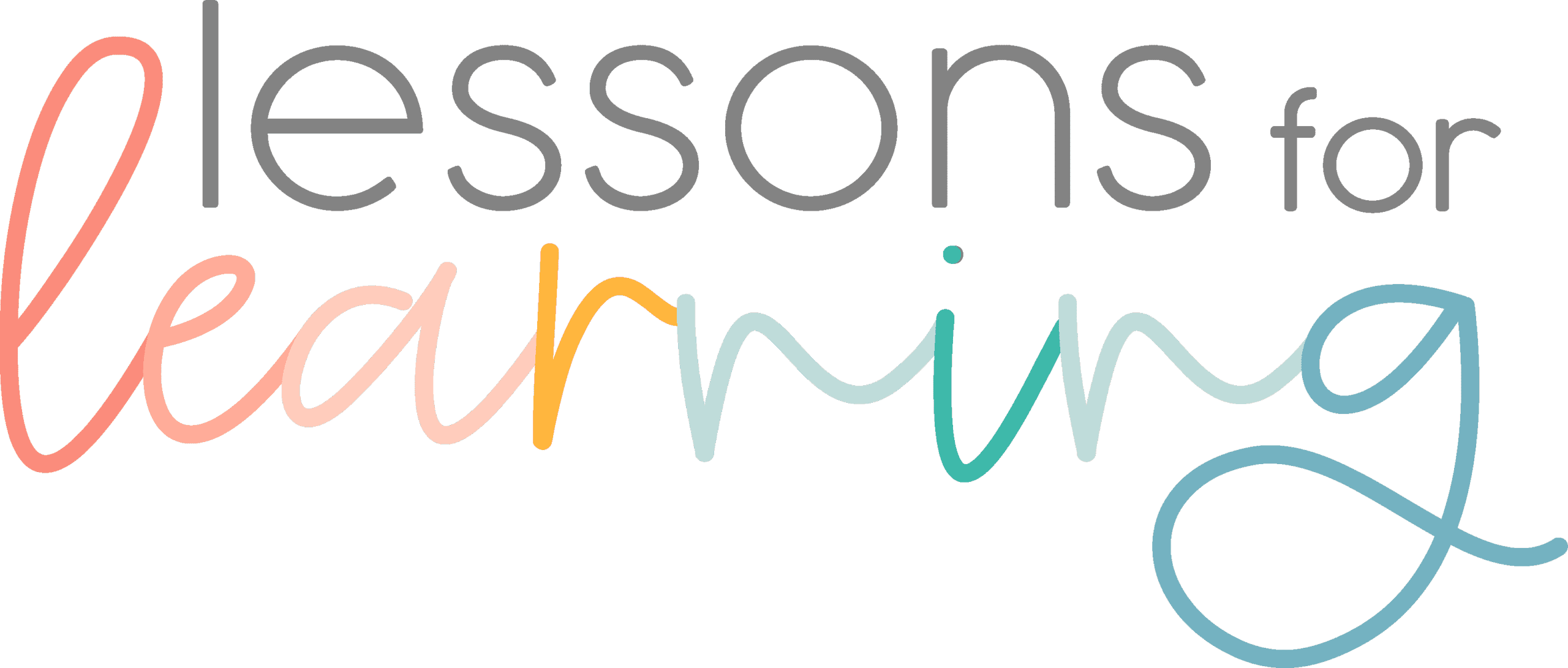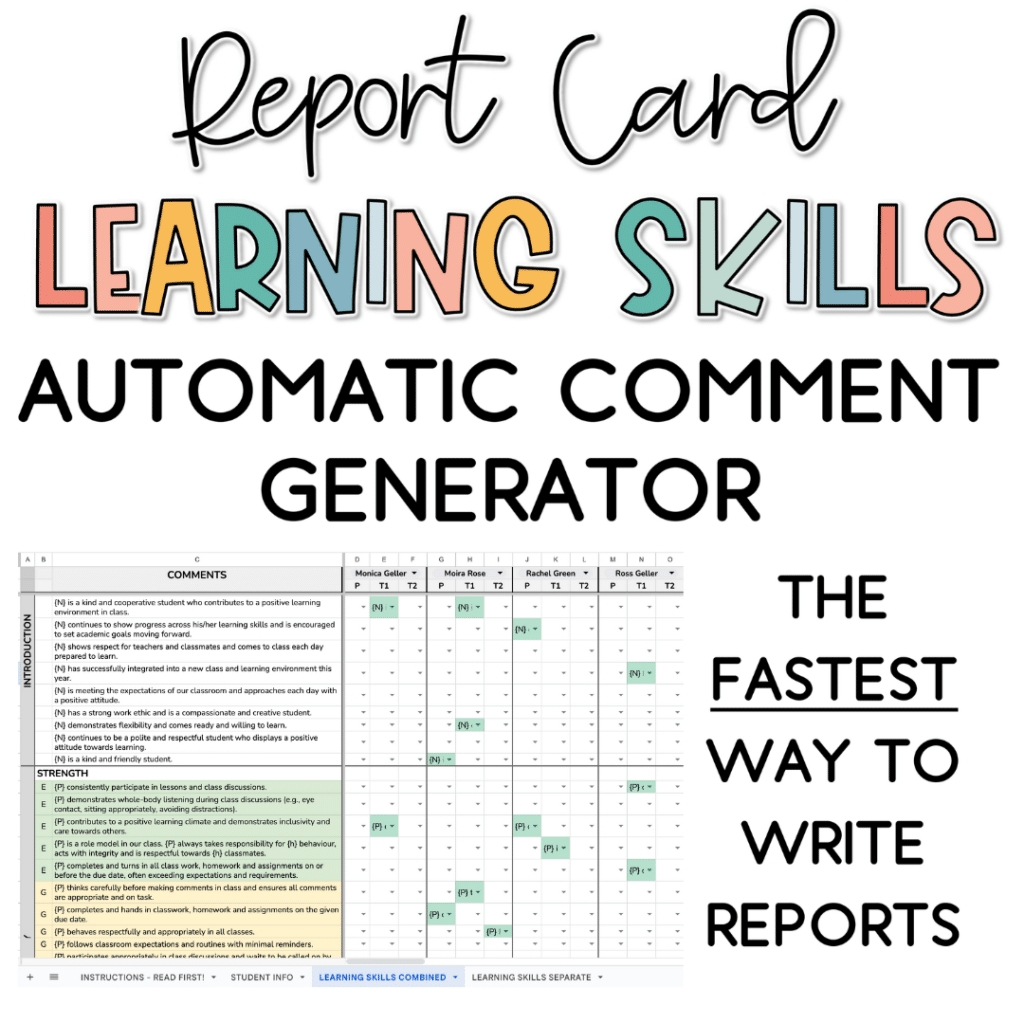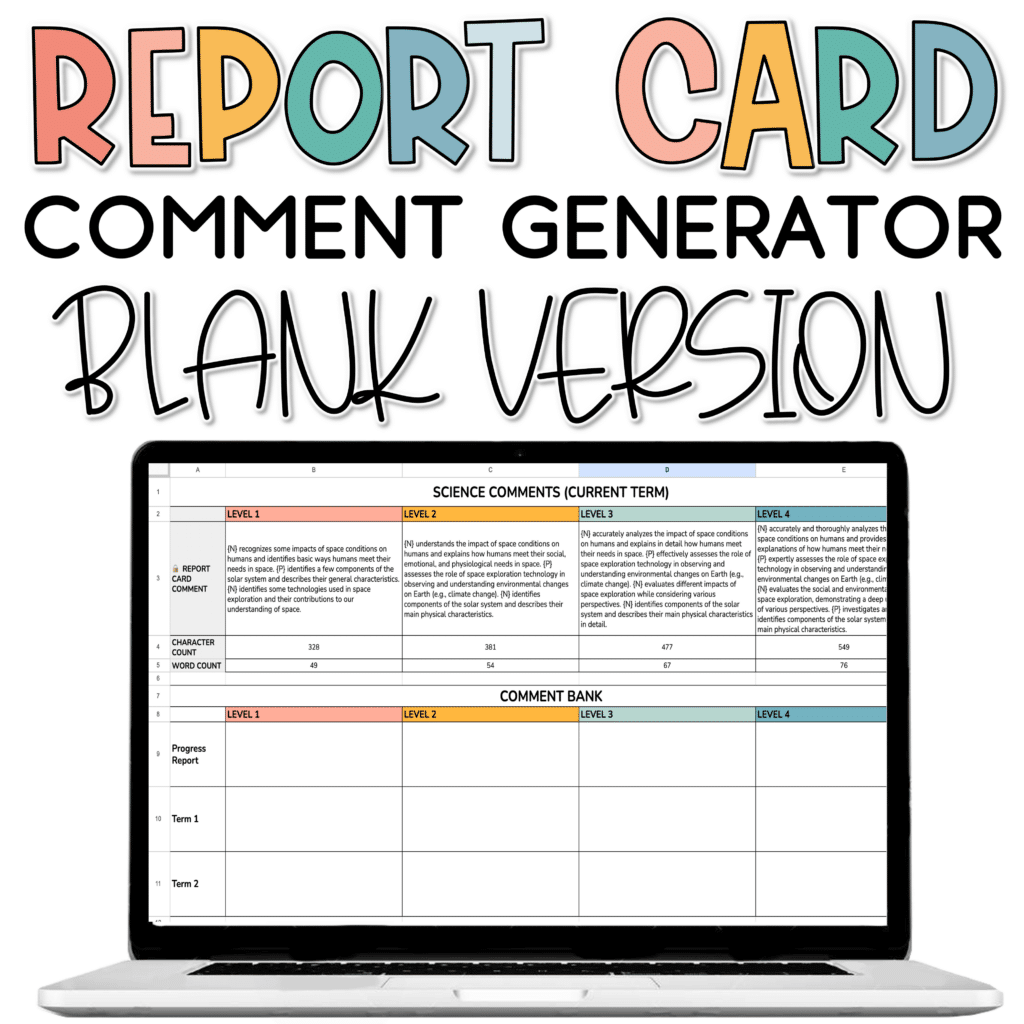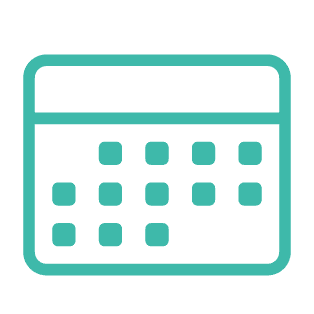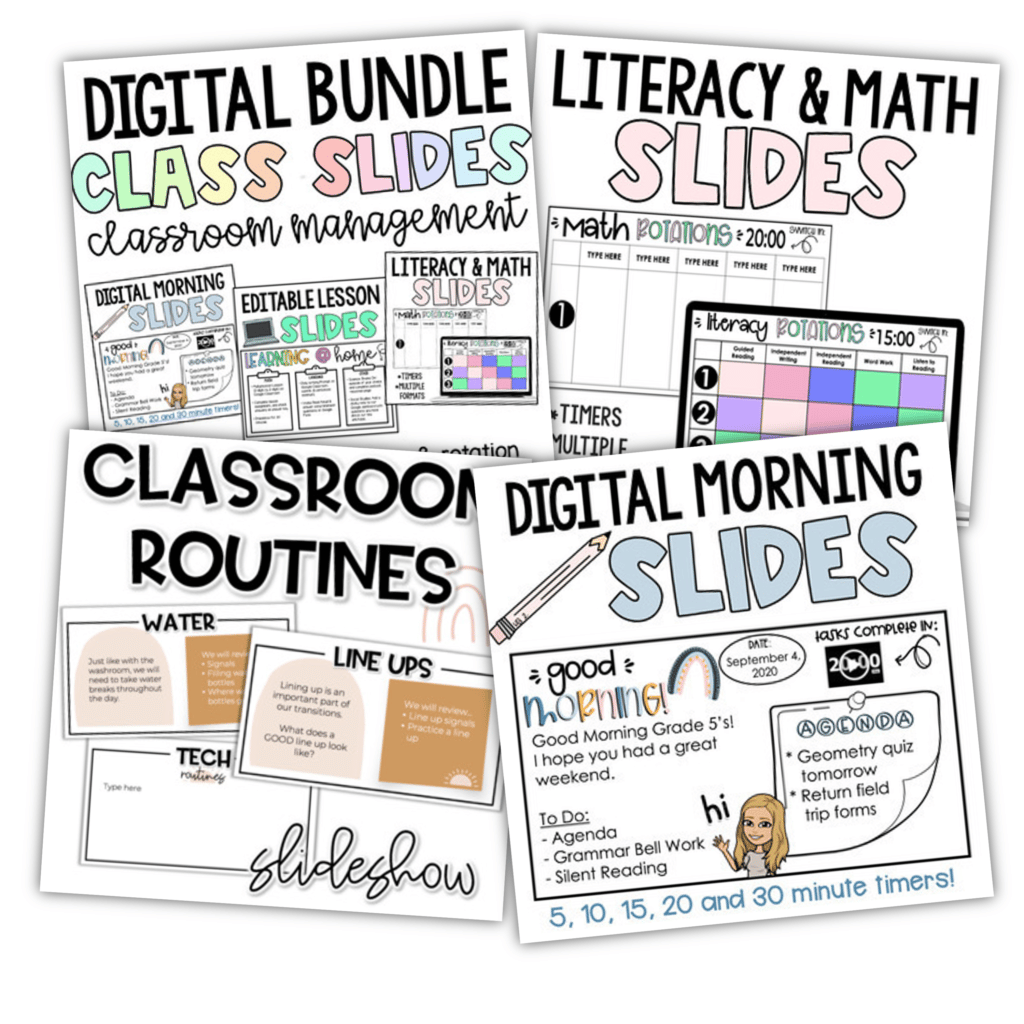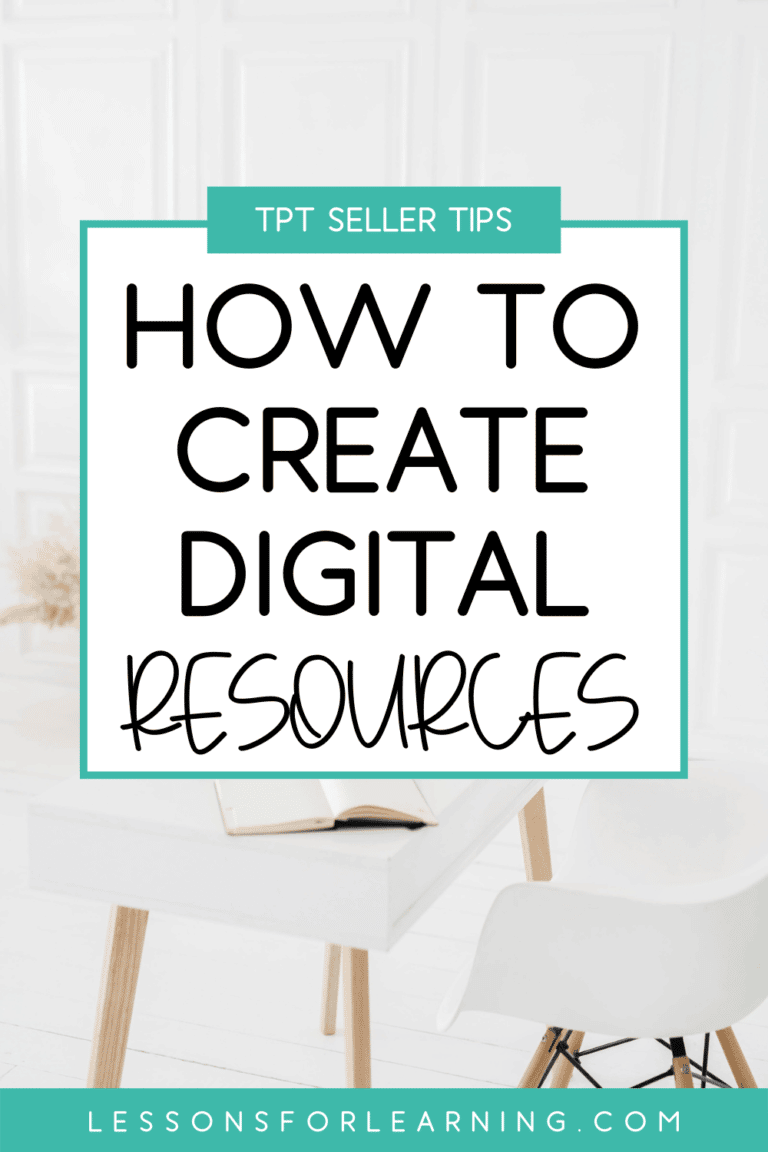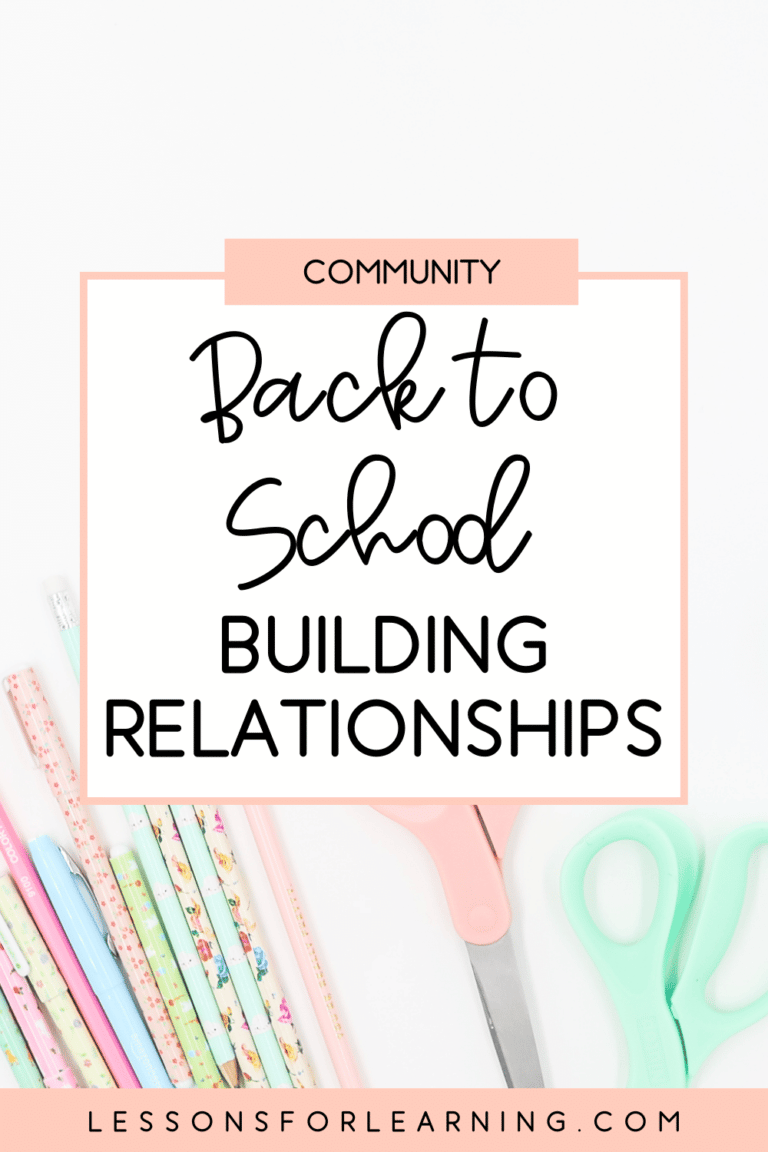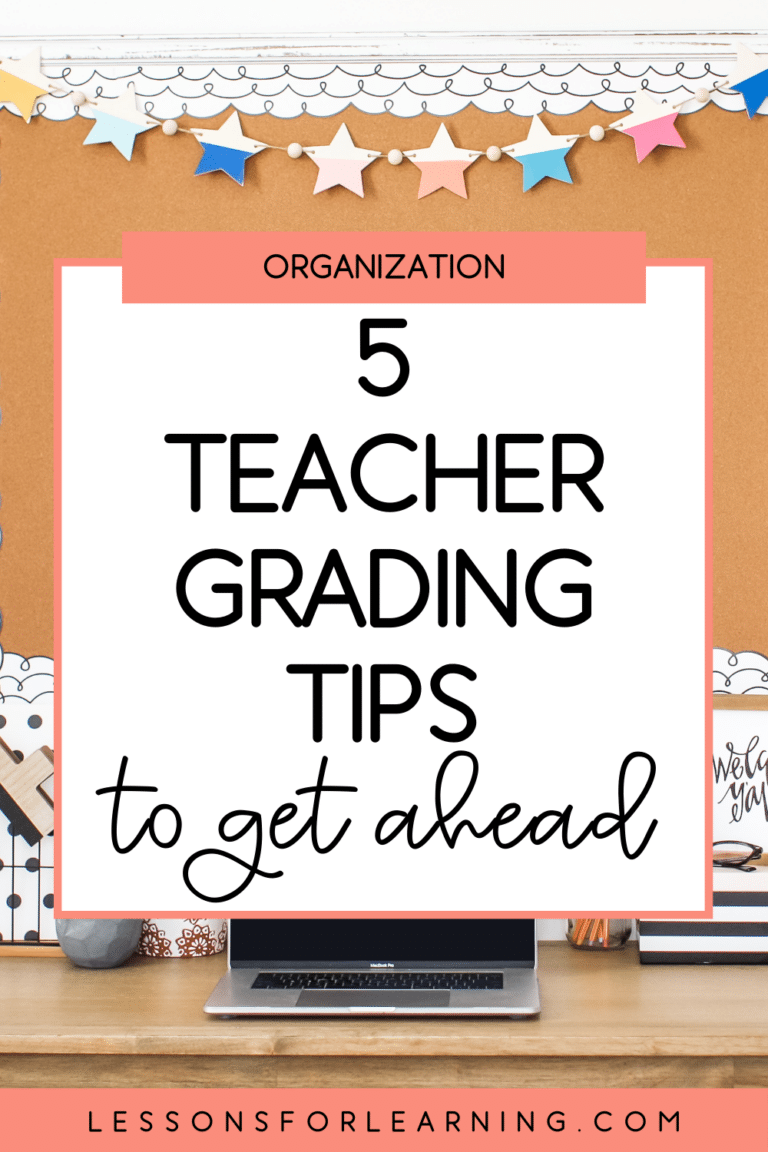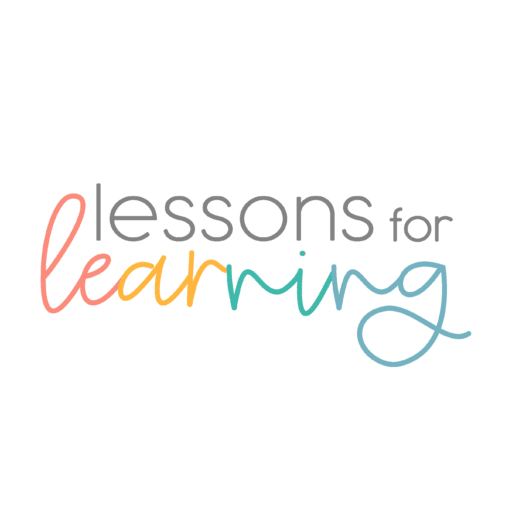One of the main sources of information about student progress for the caring adults of your students is their report card. Report card comments for teachers are therefore so important. It is imperative that they are well-written and effective to communicate progress beyond phone calls and emails.
But what’s also important is that writing report card comments for all students in your class at various points in the school year doesn’t lead to teacher burnout!
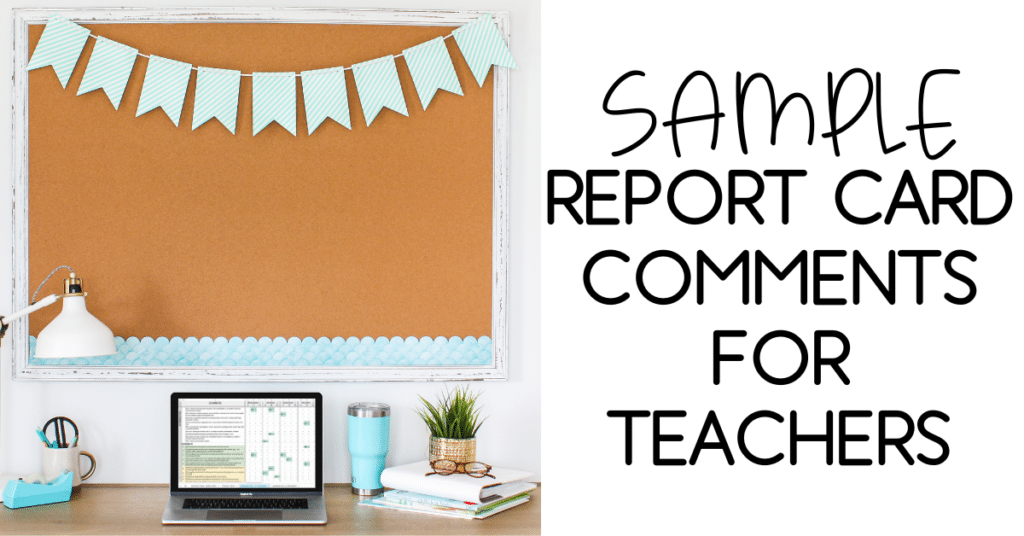
To write clear and effective reports, teachers want to be specific and to personalize comments as best as possible so it’s not a matter of cookie-cutter comments for all students.
There are some key ways to ensure report card comments for teachers are in the best form.
First is to ensure you incorporate positive language in way that balances praise and constructive feedback. Positive language doesn’t mean ignoring concerns. Instead, it’s about making sure those concerns are shared in a way that is encouraging rather than discouraging.
The comment sandwich is an ideal way to include positive language in order to balance praise and feedback. The sandwich means you include something the student does well, something the student is currently struggling with, and finally, a clear next step to improve.
Sample Report Card Comments for Teachers in Language
Here are three general sample report card comments for teachers to use for students who are below expectations in language, those meeting expectations, and finally, those exceeding the same expectations. This includes three of the overall expectations in Language – reading comprehension, writing, and oral communication.
Below Level
- <first name> struggles to meet grade-level expectations in reading comprehension. <first name> has difficulty understanding key ideas and themes in texts, and requires additional support to summarize or analyze these texts. As a next step, more independent reading and regular practice with reading strategies will help improve <first name>’s skills.
- In writing, <first name> is below grade-level expectations. <first name> needs additional support to organize their ideas clearly, and, when working independently, frequently omits important details. As a next step, <first name> should focus on planning and drafting to improve the structure and clarity of their written communication.
- <first name> needs additional support in oral communication. <first name> has difficulty articulating their thoughts in small and large groups and often hesitates to participate in class discussions. <first name> can build their confidence through continued practice speaking in small groups and preparing/rehearsing for presentations.
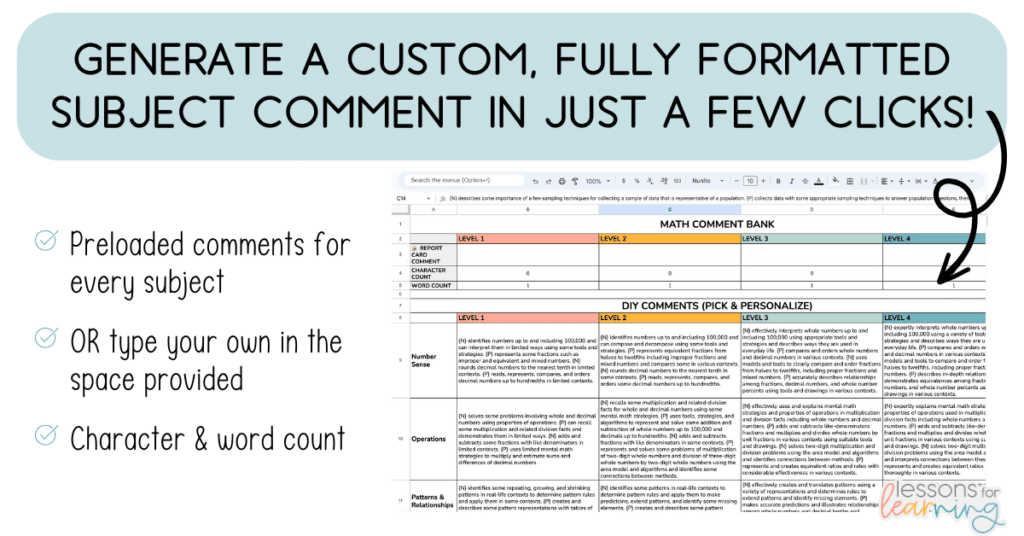
Meeting Expectations
- <first name> meets grade-level expectations in reading comprehension. <first name> identifies a text’s main ideas and details and makes basic inferences. To further improve, <first name> could focus on deeper analysis and comparing themes across different texts.
- In writing, <first name> demonstrates grade-level proficiency. <first name> organizes ideas clearly and supports arguments with evidence. To enhance written communication, <first name> should work on refining word choice and sentence variety throughout the drafting process.
- <first name> participates in oral communication activities and shares ideas with considerable effectiveness in discussions. <first name> should continue practicing active listening to further improve engagement in conversations.
Exceeding Expectations
- <first name> consistently exceeds grade-level expectations in reading comprehension. <first name> demonstrates a thorough ability to analyze a variety of texts, inferring deeper meanings and making insightful connections between themes. <first name> should continue to engage with challenging materials to further develop critical thinking skills.
- In writing, <first name> produces work that is consistently well-organized, engaging, and detailed. The use of language is sophisticated and shows a strong command of varied sentence structures and advanced vocabulary. <first name> is encouraged to continue experimenting with different writing styles.
- <first name> excels in oral communication through strong participation in small and large groups. <first name> regularly leads discussions sharing thoughts with confidence and clarity and encouraging others to do the same by consistently providing insightful feedback to peers.
Sample Math Comments
Here is a sample of report card comments for teachers in math, specifically for a unit on coding in grade 6. What’s noteworthy and can be adaptable to any unit or grade level is the use of the language from the curriculum combined in a way to make it easier for a non-teacher to understand the comments.
Below Level
<first name> writes and executes code to solve some problems and computational representations. <first name> reads some existing code and identifies some changes in code with conditional statements with limited effectiveness.
Meeting Expectations
<first name> accurately writes and executes code with conditional statements and control structures to solve problems and create computational representations. <first name> clearly reads and then determines how alterations of existing code affect outcomes.
Exceeding Expectations
<first name> expertly writes and executes code with conditional statements and control structures to solve problems and create computational representations. <first name> applies critical thinking skills to interpret how alterations of existing code affect outcomes.
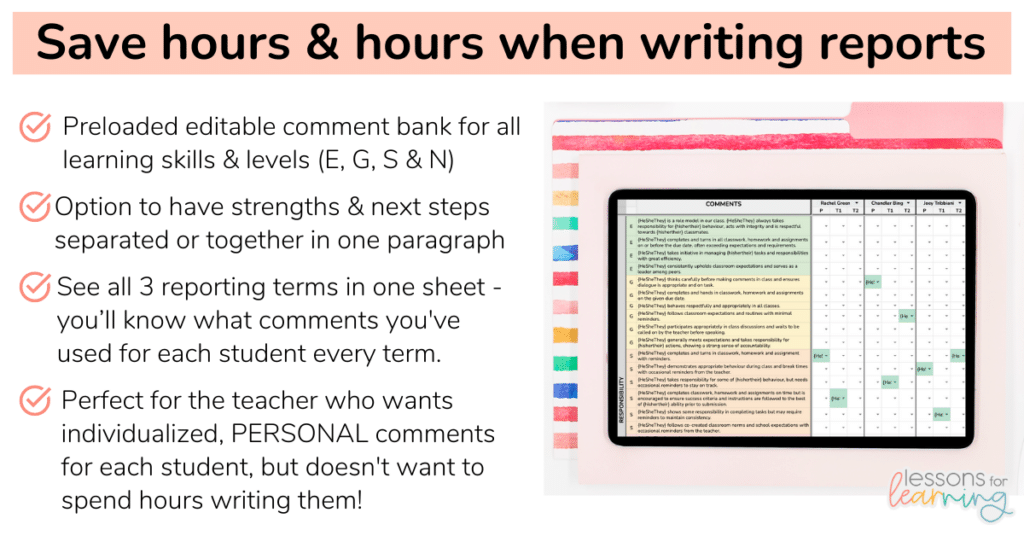
Sample Learning Skills
Another area for report card comments for teachers is writing about the six learning skills. Often these are the comments that reveal the most about students’ challenges and areas of strength.
Excellent overall
<first name> is a kind and cooperative student who contributes to a positive learning environment in class.
When absent from school, <first name> checks in with the teacher to find out what has been missed.
<first name> always chooses an appropriate activity during indoor recess or when work is complete.
<first name> consistently shares information, resources and expertise to solve problems when working with other students. This makes <first name> a valued member of any group.
One aspect that is always great to include is the student’s voice. Doing this with a student reflection component along with goal setting is ideal. This might read as “Upon reflecting on strengths in Term 1, <first name> is proud of their independent work skills. <first name>’s goal for Term 2 is to improve their organization, specifically when collaborating in groups.”
Good overall
<first name> is a positive member of our classroom learning community.
<first name> completes and hands in classwork, homework and assignments on the given due date.
<first name> can be relied upon to start working promptly after instructions have been given with minimal support from the teacher.
<first name> is encouraged to show responsible behaviour, even when a teacher is not always present (e.g., nutrition breaks).
<first name> sets individual goals and monitors the progress toward achieving them.
Satisfactory & Needs Improvement
Students who need further improvement in any of the six learning skills such as those who are chattier or disorganized need to have these behaviours addressed through an asset mindset rather than a deficit one. This means focusing on the area of need and indicating how the student is capable of learning and improving.
Here are some report card comments for teachers that are helpful in shifting the focus to assets rather than deficits:
<first name> is a kind, friendly student who is full of personality and potential.
<first name> has been working on demonstrating appropriate behaviour during class and break times and is encouraged to continue working towards this goal for the remainder of the year. <first name> completes some tasks and assignments with extended due dates and support from the teacher.
<first name> can complete single-step tasks independently when interested in the topic.
<first name> requires reminders from the teacher to stay on task and avoid distractions.
<first name> is encouraged to prioritize tasks and manage time wisely to be able to avoid needing to rush through work.
<first name> is learning to build healthy relationships and solve conflicts when working in groups.
<first name> does not enjoy challenges in the classroom. <first name> is encouraged to continue to build a repertoire of problem-solving strategies to build independence and resilience.
Want to write report cards even faster?
Whether you’ve written report cards a million times or this is your first time, it’s clear that the process requires a clear investment of time and effort. This is as it should be; however, there are ways to streamline the process so that writing report cards doesn’t become a full-time job in addition to your already more than full-time job as a classroom teacher!
This is where using a generator for report card comments for teachers can be a huge benefit! It saves time, makes the overall process more efficient, and ensures consistency in language and opportunities for personalization.
The most important benefit of writing report card comments for teachers through a generator is that it can reduce the feeling of being overwhelmed, which teachers experience even more when writing report cards. So whether you need a single grade of comments or multiple grades, specific subject report card comments for teachers of Grades 1 to 8 teachers in Ontario can be found here.
Check out these posts to help with writing report cards and more:
- The Ultimate Guide to Stress-Free Report Card Writing
- Time Management Tips for Teachers
- How to Create Effective Long-Range Plans
